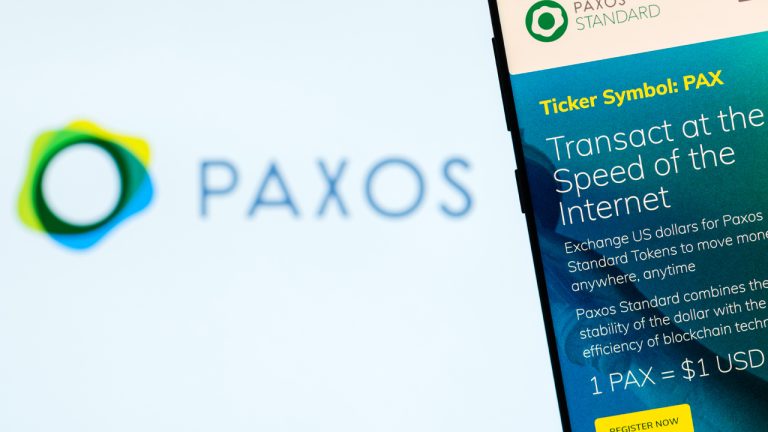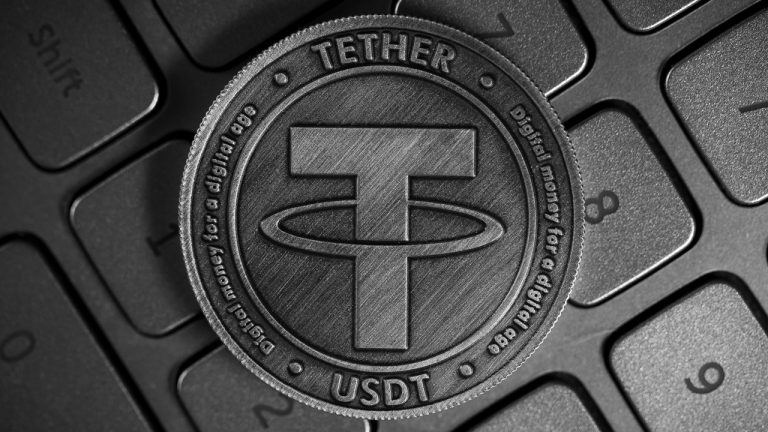 The realm of stablecoins is an ever-evolving landscape and the number of coins in circulation for the stablecoin BUSD has fallen below the 10 billion mark to approximately 9.68 billion on March 3, 2023. Over the last 30 days, BUSD’s token supply has dropped 40% lower. In contrast, the number of tethers in circulation has […]
The realm of stablecoins is an ever-evolving landscape and the number of coins in circulation for the stablecoin BUSD has fallen below the 10 billion mark to approximately 9.68 billion on March 3, 2023. Over the last 30 days, BUSD’s token supply has dropped 40% lower. In contrast, the number of tethers in circulation has […] Six days ago, a few hours before the blockchain infrastructure platform Paxos announced it would no longer mint BUSD stablecoins, $2.86 billion worth of BUSD were redeemed. Currently, Binance is the most active exchange trading BUSD tokens, and the stablecoin still commands roughly 10.7% of the crypto economy’s $67.71 billion in global trade volume over […]
Six days ago, a few hours before the blockchain infrastructure platform Paxos announced it would no longer mint BUSD stablecoins, $2.86 billion worth of BUSD were redeemed. Currently, Binance is the most active exchange trading BUSD tokens, and the stablecoin still commands roughly 10.7% of the crypto economy’s $67.71 billion in global trade volume over […]
Despite the minting of $50 million in TUSD, Zhao previously said the regulatory crackdown on stablecoins in the U.S. will cause the USD-back stablecoin market to “shrink.”
Only days after reports of United States regulatory scrutiny of Paxos and Binance USD (BUSD), cryptocurrency exchange Binance has minted nearly $50 million worth of TrueUSD (TUSD).
The transaction took place on Feb. 16, according to data from Etherscan, and also comes two days after Binance CEO Chanpeng 'CZ' Zhao said in a Feb. 14 Twitter Spaces that Binance would look to “diversify” its stablecoin holdings away from BUSD.
We're live!
— Binance (@binance) February 14, 2023
Tune-in to our Twitter Space AMA with @cz_binance below https://t.co/bXIztCKdry
Despite minting nearly $50 million in TUSD from the TrustToken platform’s smart contract on Feb. 16, CZ had earlier said the recent regulatory action by the United States Securities Exchange Commission (SEC) and the New York Department of Financial Services (NYDFS) over the long term may lead to a fall in the dominance of U.S. dollar-backed stablecoins.
“I think with the current stances taken by the regulators on the U.S. Dollar-based stablecoin, the industry will probably move away to a non-U.S. Dollar-based stablecoin, back to algorithmic stablecoins.”
“There’s multiple agencies putting applied pressure there. It is just going to shrink the U.S. Dollar-based stablecoin market,” he added.
CZ said that “this has prompted us to look for more options in different places” and that they’re now exploring other options.
50M #TUSD minted at #Binance and the price of $TRU increased by 200%.
— Lookonchain (@lookonchain) February 16, 2023
On-chain data shows that #Alameda and #justinsun are the two largest minters of $TUSD.#Alameda minted a total of 1.64B $TUSD in history.#justinsun minted a total of 889M $TUSD in history. pic.twitter.com/N1tUjFQm5U
While the CEO stated that Binance would provide more support for USD Coin (USDC) and Tether (USDT) over the short term — in expectation that BUSD “winds down over time” — he added that they’re now looking to explore more into Euro and Japanese Yen-based stablecoins.
As for BUSD, CZ said “the existing circulating supply of BUSD is there and safe, and as more people want to redeem, they will be burned.”
Interestingly, the Binance CEO added that he was never too bullish on the success of the Binance-branded BUSD stablecoin anyway:
“To be honest BUSD was never a big business for us, when we started I actually thought the BUSD project may fail, so we actually don’t have very good economics on that collaboration.”
Interesting, in September, TUSD was one of the stablecoins that Binance auto-converted to BUSD to enhance liquidity and capital-efficiency for its users. Other stablecoins that got auto-converted were USDC and USDP Stablecoin (USDP). This drove up BUSD’s share in the stablecoin market from 10% to 15% in a matter of weeks.
TrustToken launched TUSD on Mar. 5, 2018, which operates on the Ethereum, Avalanche, MATIC and Tron networks.
New TUSD is minted whenever a buyer wires USD to a third-party escrow that holds USD deposits on Prime Trust's behalf. Once received, TUSD will be transferred in a 1:1 ratio to the USD sent to the trader’s nominated ERC-20 or BEP-2 wallet address.
 According to a report published on Feb. 12, 2023, the New York-based financial institution and technology company, Paxos, has received a Wells Notice from the U.S. Securities and Exchange Commission (SEC) regarding alleged violations of investor protection laws. Paxos revealed the following day that it would no longer mint BUSD and it was ending its […]
According to a report published on Feb. 12, 2023, the New York-based financial institution and technology company, Paxos, has received a Wells Notice from the U.S. Securities and Exchange Commission (SEC) regarding alleged violations of investor protection laws. Paxos revealed the following day that it would no longer mint BUSD and it was ending its […] It appears that the circulation of the stablecoin usd coin has decreased while tether’s has grown, as the latest statistics paint a contrasting picture. Tether saw a 3% increase in coins in circulation over the last month, while the U.S. dollar-pegged crypto asset usd coin recorded a decrease of approximately 4.9% in the same time […]
It appears that the circulation of the stablecoin usd coin has decreased while tether’s has grown, as the latest statistics paint a contrasting picture. Tether saw a 3% increase in coins in circulation over the last month, while the U.S. dollar-pegged crypto asset usd coin recorded a decrease of approximately 4.9% in the same time […]
While the exact reason for the investigation hasn’t been revealed, it has been reported that the New York regulator plans on upping its efforts to protect consumers this year.
Paxos Trust Company — the New York-based stablecoin issuer behind Binance USD (BUSD) and Paxos Dollar (USDP) — is reportedly being investigated by the New York Department of Financial Services (NYDFS).
A “person familiar with the matter” told Bloomberg in a Feb. 10 report that the exact motive behind the probe is currently unclear.
An NYDFS spokesperson declined to comment on ongoing investigations but noted that the department is broadly working to protect consumers from risks associated with investing in the cryptocurrency market:
“The department is in continuous contact with regulated entities to understand vulnerabilities and risks to consumers and the institutions themselves from crypto market volatility we are experiencing.”
Paxos has issued BUSD — a U.S. Dollar-collateralized stablecoin — since the firm struck a partnership with Binance in September 2019. It is the third largest stablecoin, with a market cap currently exceeding $16 billion.
It is also the creator of the Paxos Dollar (USDP) which was launched in 2018. Today it is the sixth largest stablecoin with a market cap of about $875 billion, according to CoinGecko, and is the founder of PAX Gold (PAXG), a gold-backed-Ethereum token.
The company is also behind digital asset exchange itBit, which it launched in 2012 alongside the founding of Paxos.
The NYDFS issued Paxos with “BitLicense” in 2015, which legally permits companies to conduct digital currency-related activities in the state of New York.
Paxos recently refuted rumors that the U.S. Office of the Comptroller of the Currency (OCC) may order Paxos to withdraw its application for its full banking charter, despite the firm only receiving a preliminary approval in April, 2021.
To clarify speculation: Paxos has not been asked to withdraw its application for a national trust bank charter from the OCC, nor has it been denied the charter. Paxos continues to work constructively with the OCC.
— Paxos (@PaxosGlobal) February 8, 2023
Paxos also claims on its website that its BUSD and USDP token reserves are backed wholly in U.S. Dollars and U.S.Treasuries.
Related: New York State issues guidance for banks seeking to engage in activities with crypto
If reports of the investigation are true, it wouldn’t be the first one initiated by the NYDFS over the last year.
Coinbase Global U.S. reached a $100 million settlement with the New York regulator on Jan. 4 after they found that they failed to look over about 100,000 suspicious transactions from customers who opened accounts without sufficient background checks.
Shortly after Terra LUNA ecosystem and its failed algorithmic stablecoin TerraClassicUSD (USTC) collapsed in May, 2022, the NYDFS published stablecoin guidance report to ensure stablecoin issuers fully back their assets and attest regularly.
Cointelegraph reached out to Paxos and Binance to comment on the matter but did not receive an immediate response.
 During the last month, the market capitalization of all the stablecoins in existence dropped by more than 2%, shedding roughly $2.98 billion since the end of October. Statistics show that tether, the largest stablecoin by market valuation, saw its market cap lose more than 5% during the last 30 days. Tether’s market cap slipped from […]
During the last month, the market capitalization of all the stablecoins in existence dropped by more than 2%, shedding roughly $2.98 billion since the end of October. Statistics show that tether, the largest stablecoin by market valuation, saw its market cap lose more than 5% during the last 30 days. Tether’s market cap slipped from […] While the stablecoin economy has seen fluctuations from specific stablecoin tokens either increasing the project’s number of tokens in circulation or decreasing the supply, the stablecoin GUSD issued by Gemini has increased by 129.5% during the last 30 days. GUSD Sees Supply Balloon by Nearly 130% There’s been a number of changes within the stablecoin […]
While the stablecoin economy has seen fluctuations from specific stablecoin tokens either increasing the project’s number of tokens in circulation or decreasing the supply, the stablecoin GUSD issued by Gemini has increased by 129.5% during the last 30 days. GUSD Sees Supply Balloon by Nearly 130% There’s been a number of changes within the stablecoin […] Over three billion in value was erased from the stablecoin economy during the past 30 days. The trend occurred despite the number of tethers in circulation rising by 2.2% last month. On Oct. 1, 2022, tether’s market capitalization was approximately $67.95 billion, and it’s risen to $69.36 billion since then. Circle’s usd coin, on the […]
Over three billion in value was erased from the stablecoin economy during the past 30 days. The trend occurred despite the number of tethers in circulation rising by 2.2% last month. On Oct. 1, 2022, tether’s market capitalization was approximately $67.95 billion, and it’s risen to $69.36 billion since then. Circle’s usd coin, on the […]
The approvals came after the Monetary Authority of Singapore issued two consultation papers that proposed to ease regulatory hurdles for digital asset service providers.
Stablecoin issuers Circle and Paxos have each received approvals for their respective licenses from the Monetary Authority of Singapore (MAS), the city-state's central bank.
Circle received in-principle approval for a Major Payments Institution License allowing it to issue cryptocurrencies and facilitate domestic and cross-border payments while Paxos received its license to offer digital payment token services.
Circle and Paxos both announced their approvals on Nov. 2, which came a week after the MAS issued two consultation papers on proposals for regulating digital payment token service providers and stablecoin issuers under Singapore’s Payment Services Act (PSA).
The PSA was passed by the Singapore Parliament in 2019, which purports to regulate payment systems and authorizes MAS to oversee the conduct of payment service providers.
Circle, the issuer behind USD Coin (UDSC), and Paxos with its Pax Dollar (USDP), both U.S. dollar-pegged stablecoins will now be able to offer their respective stablecoins and other digital payment token products within Singapore.
According to Dante Disparte, Circle's Chief Strategy Officer and Global Head of Public Polic, its approval is set to open up greater potential for cryptocurrencies and open payment systems to drive economic growth in Singapore under the more innovative-friendly regulatory framework.
Co-founder and CEO of Circle Jeremy Allaire added the license “in one of the world’s leading financial hubs” will be “instrumental to Circle's regional and global expansion plans in raising global economic prosperity.”
Paxos Asia CEO Rich Teo was also thrilled with its approval:
“We’re excited to have MAS as our regulator, and with their oversight, we’ll be able to safely accelerate consumer adoption of digital assets globally in partnership with the world’s biggest enterprises."
Related: Singapore MAS examines crypto firms ahead of new regulations: Report
While it remains to be seen how many more firms will follow Circle and Paxos’ footsteps, the easing in regulations comes as MAS knocked back over 100 out of 170 applicants in late 2021 under the tighter regime.
MAS took things one step further in mid-2022 following the now saga that stemmed from Singapore-based and bankrupt Three Arrows Capital’s (3AC), with chief fintech Sopnendu Mohanty stating that MAS will be “brutal and unrelentingly hard” on “bad behavior” from the crypto industry.
Singapore is fighting to take back its perception to be one of the more crypto-friendly countries. However, it continues to tread with caution for retail investors — with Singapore’s largest bank DBS recently deciding to only expand its crypto trading services to accredited investors who meet strict criteria.
Cointelegraph reached out to Circle and Paxos for comment but did not receive an immediate response.